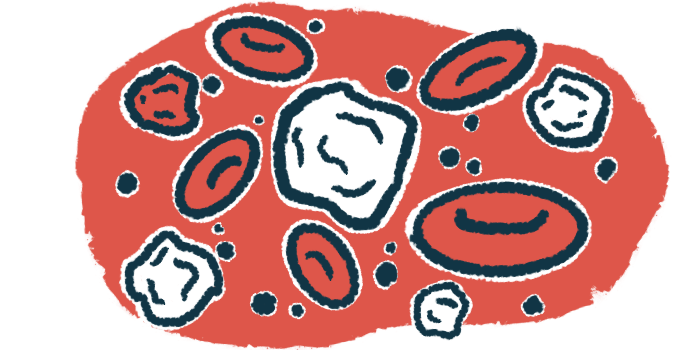SENTI-202 granted FDA orphan drug designation for blood cancers
Natural killer cell therapy uses molecular weapon to attack specific targets
Written by |

Senti Biosciences‘ experimental cell therapy SENTI-202 has been granted orphan drug designation by the U.S. Food and Drug Administration (FDA) as a potential therapy for hard-to-treat blood cancers, including acute myeloid leukemia (AML).
The FDA gives this designation to experimental treatments for rare disorders to encourage investment in drugs, particularly when it may be harder for companies to recoup their costs and turn a profit. The designation confers incentives including tax breaks, fee waivers, and a guarantee of seven years’ market exclusivity if SENTI-2002 is ultimately approved.
“Receiving Orphan Drug Designation for SENTI-202 provides further validation to our novel approach to overcoming AML [variability] and protecting healthy cells, and underscores the need for new and effective treatment options,” Timothy Lu, MD, PhD, co-founder and CEO of Senti, said in a company press release. “Building upon our recently reported positive preliminary results, this important milestone bolsters our commitment to advancing the development of this important program forward.”
SENTI-202 uses NK cell from healthy donors
SENTI-202 works by taking natural killer (NK) cells, a type of immune cell that can kill cancer cells, and equipping them with a molecular weapon called a chimeric antigen receptor (CAR), which directs the cells to attack specific molecular targets. In SENTI-202, the CAR is able to attack one of two target proteins, CD33 and FLT3, that are present on some blood cancer cells. The CAR is also designed to help prevent the NK cell from attacking healthy cells that may express these markers.
SENTI-20, which uses NK cells from a healthy donor that are modified and then administered into the patient, is being developed as an off-the-shelf therapy.
SENTI-202 is currently being evaluated in a Phase 1 clinical trial (NCT06325748). It is enrolling adults ages 18 to 74 who have myelodysplastic syndrome. AML, or other blood cancers that are relapsed or refractory — meaning the cancer has not responded to other treatments or has come back after earlier treatment. To be eligible, patients must have cancer cells that express CD33 and/or FLT3. Enrollment is ongoing at sites across the U.S. and Australia.
All participants in the Phase 1 study will be treated with SENTI-202. Prior to treatment, participants must undergo a lymphodepletion regimen, which uses two chemotherapy medications to eliminate a patient’s immune cells and make room for the therapeutic cells. The study’s main goal is to assess the safety of SENTI-202; scientists are also evaluating the cell therapy’s anticancer effects.
Preliminary data from the Phase 1 study, announced a few months ago, showed five out of seven evaluable AML patients were in remission following treatment with SENTI-202. Four out of four evaluable patients were negative for minimum residual diseases, essentially meaning they were showing no signs of any cancer cells at all.
Preliminary safety data showed the tolerability of SENTI-202 was on par with what’s typically seen in AML patients receiving lymphodepletion. Serious side effects such as fever, low blood cell counts, and abdominal pain were reported, but mostly attributed to the lymphodepletion regimen and not to SENTI-202 itself.




